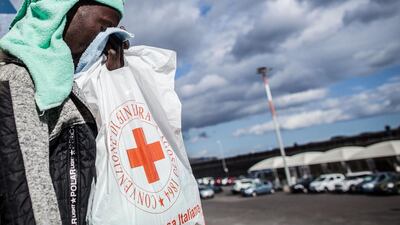European attempts to prevent migrant boat crossings in the Mediterranean has made member states complicit for the deaths of more than 5,300 people crossing Libya for Italy.
Oxfam and 49 other major charitable organisations used an open letter to warn EU governments on Friday that thousands of people are at risk from sexual abuse, slavery and other human rights abuses by Libyan coast guards and in Libyan detention camps.
An EU-backed deal between Libya and Italy two years ago saw the exchange of Italian funding and support for Libya’s coastguards in return for Libya preventing people from crossing the Mediterranean Sea to Europe.
The open letter also blames some EU countries for deliberately preventing rescue missions to take place.
“Attempting to prevent the life-saving operations of NGOs and commercial vessels is a dangerous approach that puts lives at risk and undermines citizens’ trust in their governments to resolve the situation”.
“EU countries are making the Mediterranean a watery graveyard as a matter of deliberate policy. They must allow search and rescue ships to dock in their ports, disembark rescued people, and return to sea to save people’s lives, in line with international law. All attempts to prevent their work will inevitably lead to more deaths and run counter to Europe’s humanitarian values,” said Oxfam’s EU migration policy advisor Raphael Shilhav.
According to Oxfam, the Libyan coastguard intercepted more than 15,000 people and returned them to Libya in 2018. Currently, 6,400 people are known to be held in official detention sites in Libya, some run by armed men.
Eye witness accounts say those detained have been subject to violent abuse by Libya’s coastguards and detention centres.
“They beat me on the soles of my feet, my calves and my knees, but I kept saying that I couldn’t contact anyone because I had no family left in Mali … I saw a young Gambian boy beaten to death before my eyes because he dared to rebel and answer back to them,” said one 17 year old boy from Mali, whose identity has been protected.
Yonas, 28, from Eritrea, was detained by a number of gangs in Libya.
“Many died and were buried like animals. The women were raped in front of us. We were beaten every day by prison guards selected from the group of migrants … They beat us and made us call our family to ask them to send us money.”

